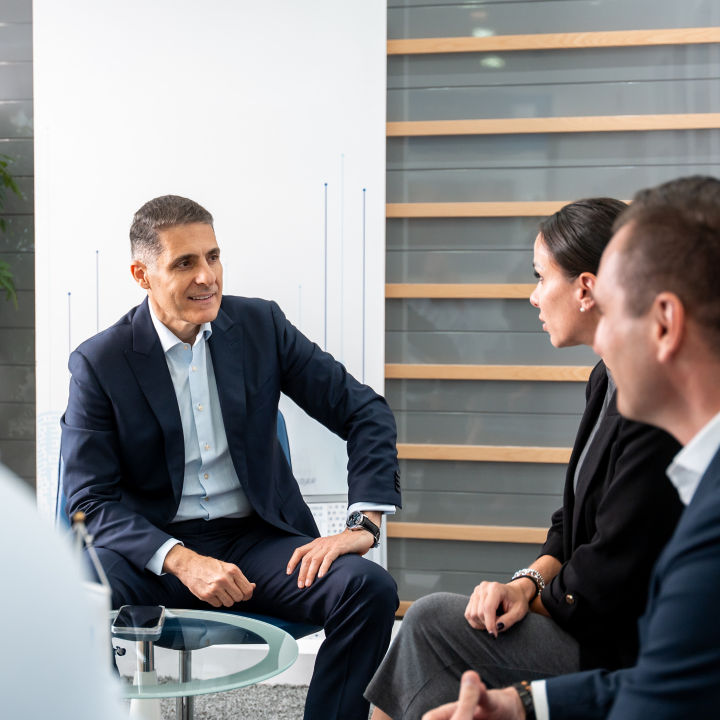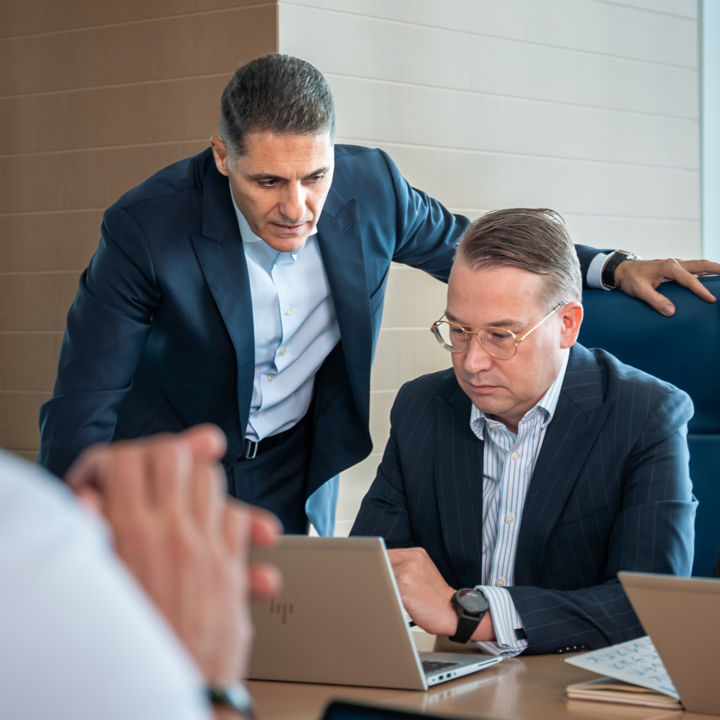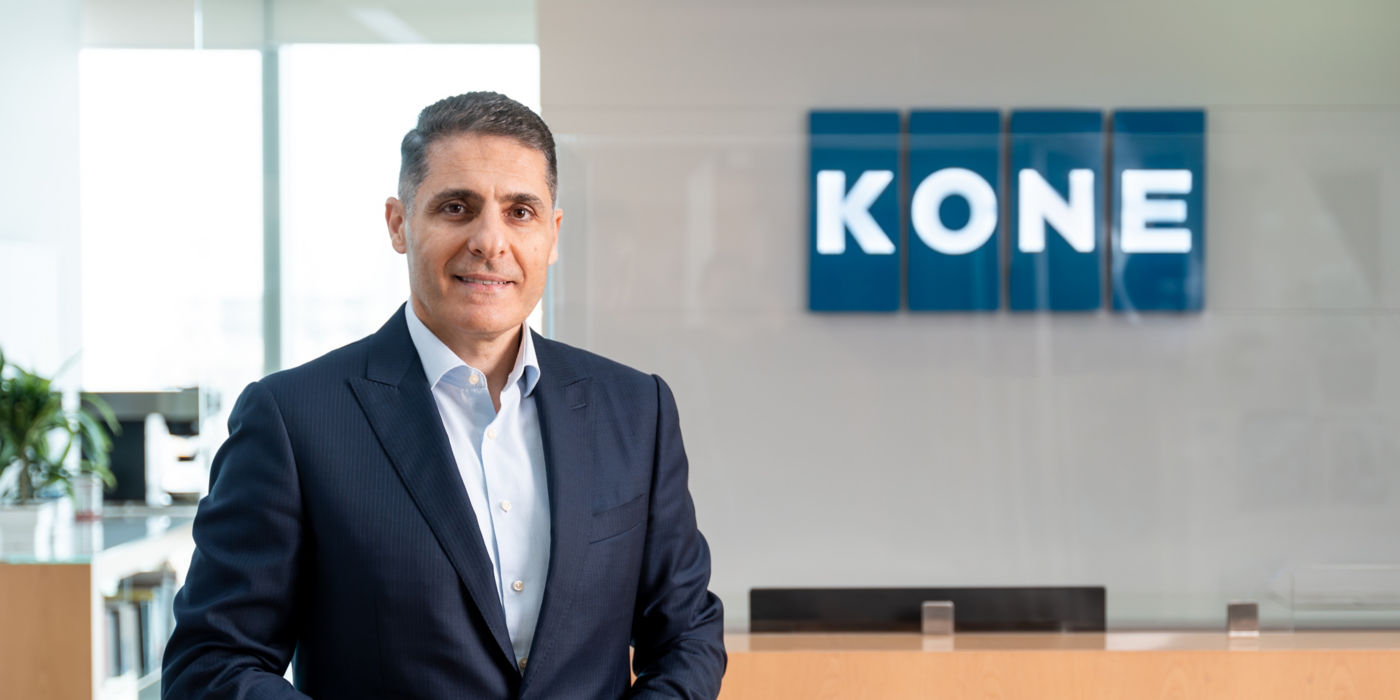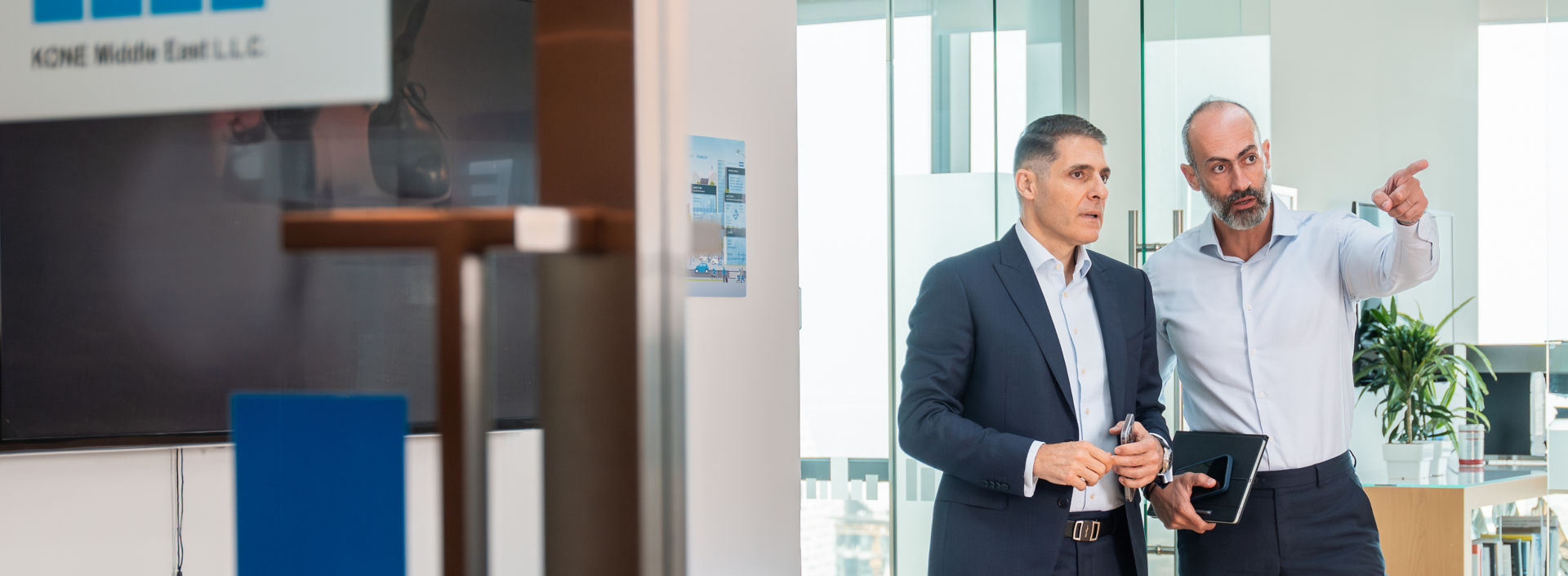The Asia-Pacific, Middle East, and Africa, APM region is undergoing significant growth and urbanization. How would you describe these changes, and why are they important for KONE?
APM stands out from KONE’s other Areas due to its diversity in culture, background, and business. The beauty of this area lies in its diversity, and geographical spread, which means the market is constantly changing and requires businesses to be agile.
Understanding the market with its intricacy of customer needs is essential for us at KONE. In Asia, urbanization is increasing with more people moving to emerging cities, while in Australia, it is stabilizing, and the built environment matures. The operating environment can change rapidly, and there is also more appetite for digital solutions, especially among the younger generation in APM. We need to continuously grow our competence and innovate for a greener built environment while identifying and capturing new business opportunities.
You’ve been behind several successful projects driving growth – can you share a few examples?

Before becoming area leader and joining the board, I focused on building KONE’s direct presence in countries like Egypt and Saudi Arabia, working with distributors and partners where we saw strong potential. It was the right direction, greatly expanding our footprint, market share, and reputation in the area.
A couple of years ago, in my current role, we clustered six countries in Southeast Asia to transform them into a coherent KONE frontline. Instead of having teams in each country, we created one strong team for regional support. As a result, those countries got stronger and gained market share while the customers now see us as a unified team and a diverse solution and service provider.
You lead an award-winning, diverse team across different cultures and countries. How do you achieve success within such a global team?
My team and I strongly believe that when we have a motivated group of people, we will end up with satisfied customers – it’s a win-win situation.
I see a lot more positive aspects than challenges in working with people from such a wide area as mine. Building the right team is very important because with a diverse team built on varied strengths, you have access to ideas stemming from unique backgrounds. I learn every day from the people around me, from India to Australia. As a leader, I bring these ideas together and make sure they contribute to our shared vision.
I promote communication and constant dialogue between people working in different KONE locations. Being transparent and elaborating on our views can unlock deeper understanding.
With AI, remote work and rapidly shifting markets, leadership is evolving faster than ever. How do you see work transforming in the era of AI?

It has been five years since COVID disrupted our ways of connecting with people. The pandemic taught us the importance of supporting each other and working through changing circumstances together.
Many fear that AI will make people redundant – I don’t think so at all. It can help companies work smarter and generate efficiency. AI is a wide, unchartered area, a bit scary even. Yet being selective and collectively deciding how to use it in companies and societies will be key.
AI can help us improve productivity, especially in growing regions, such as the one I work with. It is also a tool for resourcing, as skilled manpower is not always available.
What will define a great leader in the future?
Leaders must keep learning every day. We live in a time of rapid change that does not allow us to stay put. At times, it is necessary to also unlearn because what brought us here may not be what takes us into the future. This can be difficult, as leaders may want to stick to previous ways of doing things, even if they’ve become outdated.
While I consider myself a traditional leader, I have to transform and align with what is happening around us. I foster transparency and agility all the way. I believe we should learn from the younger generation, who are faster in adopting AI, new technology, and the latest trends.
Because of the volatility in the markets globally, we need to be resilient and ready to face tough times. Yet as leaders, we should remember to focus on the positive – there are many threats in the world we cannot influence and trying to do so will only drain us and promote uncertainty at the workplace.

You have been part of KONE for 25 years. What leadership lessons have you learned during your journey?
As a company, KONE has continuously provided me with new challenges and pushed me out of my comfort zone, which has been great. My learning journey has brought me where I am today, responsible for a large geographical area.
People need to sing the same song, and the leader should be the one to create harmony. This means creating a vision, presenting a shared destination, and aligning with the team. After that, it’s about providing help and making sure that we are on the right track. Harnessing the power of one team to work together and deliver results with passion is my recipe for good leadership.
According to its strategy, KONE wants to be the easiest company to work for and to work with. How do you see this?
This is at the core of our strategy. My role is to facilitate finding the best processes, tools, and ways of communicating with each other at KONE. As leaders, we don’t know everything. We should listen to our employees who work with the day-to-day and encourage their ideas – they know what it takes for them to succeed in their work and what our customers want. As a leader, I am there to facilitate as well as challenge these dialogues in the company, all the way from the bottom to the top.
Leaders should always fight silence – it is our biggest enemy when it comes to collaboration. At times, people may become isolated in their work. However, collaboration and care are great values at KONE – we care about each other. Empathy is key to enhancing both our well-being and performance. As long as we know that we are in the same boat, going in the same direction, we can get there successfully.
What is the role of empathy and other soft skills, like emotional intelligence, in leadership?
They are essential. Emotional intelligence allows you to connect with people faster. When working in different areas, leaders and their teams also need cultural intelligence to unlock mutual understanding.
We are all human beings with our own issues, obstacles, and challenges. It’s very important to talk about things in a fair and balanced way, and for leaders to facilitate genuine discussions with employees.
Managing a hectic job may be challenging for personal life. How do you balance being a leader with your extensive travel and work responsibilities?
Travel is always a challenge for the family. Now that my children are adults, it’s much easier, but maintaining balance can still be hard. The best thing for those looking to combine a high-pressure job and family is to have open dialogue at home. This way, you can find solutions and you don’t need to compromise all the time. That is my best advice, although it took me a while to figure it out.
